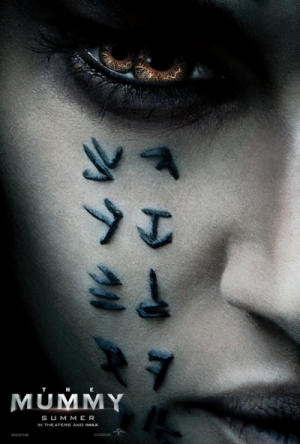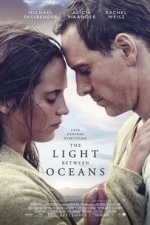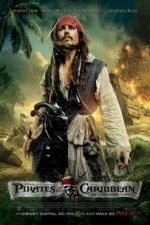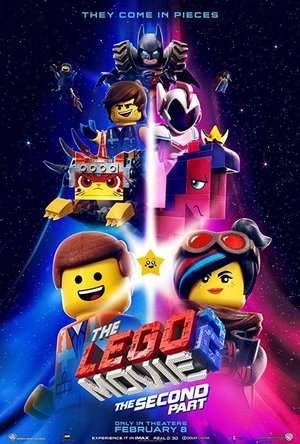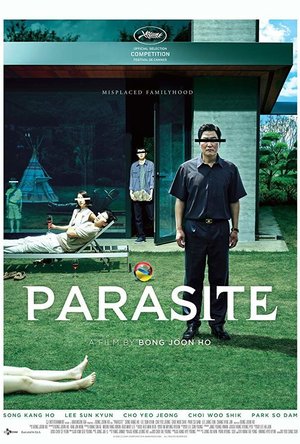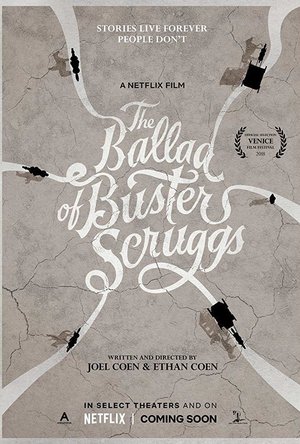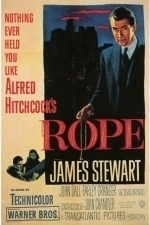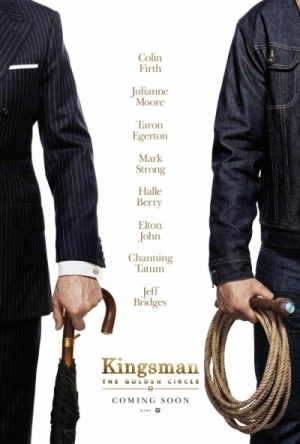Search
Bob Mann (459 KP) rated The Mummy (2017) in Movies
Sep 29, 2021
Crushingly Mediocre
I’d read the bad reviews, but thought “Hey, it’s Tom Cruise – how bad could it be?” The answer is, “Pretty bad”.
It’s an ominous sign when a film starts with a voice-over (even if done by the sonorous tones of Russell Crowe). Regular readers of this blog will know I generally abhor voice-overs: it invariably belies a belief by the scriptwriters that they think the audience are too damn stupid to join up the plot-dots themselves. Here we portentously walk through the ancient Egyptian backstory of princess Ahmanet (Sofia Boutella, “Kingsman: The Secret Service“; “Star Trek Beyond“) cursed to become the titular Mummy. We then skip forward to the present day and the film settles down, promisingly enough, with scavenging adventurer Nick Morton (Cruise, in Indiana Jones mode), discovering a lost Egyptian temple in war-torn modern-day Mesopotamia that for the sake of the world should have stayed lost.
But after an impressive plane crash (with zero G scenes filmed for real in a “Vomit Comet”) the plot dissolves into a completely incoherent mush. With B-movie lines forcing B-movie acting performances, the film lurches from plot crisis to plot crisis in a similar manner to the comically lurching undead Zombie-like creatures that Ahmanet has sucked the life out of. (After 110 minutes of this, I know how they feel!)
What were actors of this calibre doing in this mess? When I first saw the trailer for this, and saw that Cruise was in it, I thought this felt like an unusual career misstep for the megastar. After seeing the film, I’m even more mystified. Nick Morton is supposed to be an immoral bad guy. Immoral bad guy?? Tom Cruise?? Nope, you lost the audience on that one in the first ten minutes. Cruise, who is STILL only a year younger than I am (damn him, for real!) is still in great shape and must spend ALL his time in the gym. There must be a time soon coming though where he gets to a “Roger Moore in View to a Kill” moment where these action hero roles just no longer become credible anymore.
And what was Russell Crowe, as a famous / infamous (yes, both!) doctor from literature doing in this? His character’s involvement in the plot was almost completely inconsequential. In fact his ‘affliction’ only serves as a coincidental diversion (how convenient!) for bad Mummy-related action to happen. His character has no backstory and seems to serve only as a backbone for Universal’s “Dark Universe” franchise that this movie is supposed to launch. (Good luck with that Universal after this stinker!) Surely it would have made more sense to have the first film in the series to be the origins story for Crowe’s character and the organisation he sets up. This would have made far more sense.
Annabelle Wallis, who is sweet and “only” 22 years his junior, plays Cruise’s love interest in the film and equips herself well, given the material she has to play with. However (after “King Arthur: Legend of the Sword“) she must be kicking herself for not picking the ‘right’ summer blockbusters for her CV.
The main culprit here is the plot, which again is mystifying given that the writing team includes David Koepp (“Jurassic Park”; “Mission Impossible”); Christopher McQuarrie (“The Usual Suspects”, “Edge of Tomorrow“) and Jon Spaihts (“Mission Impossible: Rogue Nation“, “Doctor Strange“). A poor script can sometimes be salvaged by a good director, but here we have Alex Kurtzman, who has only one other directing credit to his name. And I’m afraid it shows. All round, not a good day at the office.
Brian Tyler did the music (aside from the Danny Elfman opening “Dark Universe” fanfare) but it comprises what I would term “running and jumping music”, with few discernible leitmotifs for the characters breaking through.
“Was that supposed to be funny?” My wife’s reaction after the film sums up that this really is a bit of a stinker. Best avoided.
It’s an ominous sign when a film starts with a voice-over (even if done by the sonorous tones of Russell Crowe). Regular readers of this blog will know I generally abhor voice-overs: it invariably belies a belief by the scriptwriters that they think the audience are too damn stupid to join up the plot-dots themselves. Here we portentously walk through the ancient Egyptian backstory of princess Ahmanet (Sofia Boutella, “Kingsman: The Secret Service“; “Star Trek Beyond“) cursed to become the titular Mummy. We then skip forward to the present day and the film settles down, promisingly enough, with scavenging adventurer Nick Morton (Cruise, in Indiana Jones mode), discovering a lost Egyptian temple in war-torn modern-day Mesopotamia that for the sake of the world should have stayed lost.
But after an impressive plane crash (with zero G scenes filmed for real in a “Vomit Comet”) the plot dissolves into a completely incoherent mush. With B-movie lines forcing B-movie acting performances, the film lurches from plot crisis to plot crisis in a similar manner to the comically lurching undead Zombie-like creatures that Ahmanet has sucked the life out of. (After 110 minutes of this, I know how they feel!)
What were actors of this calibre doing in this mess? When I first saw the trailer for this, and saw that Cruise was in it, I thought this felt like an unusual career misstep for the megastar. After seeing the film, I’m even more mystified. Nick Morton is supposed to be an immoral bad guy. Immoral bad guy?? Tom Cruise?? Nope, you lost the audience on that one in the first ten minutes. Cruise, who is STILL only a year younger than I am (damn him, for real!) is still in great shape and must spend ALL his time in the gym. There must be a time soon coming though where he gets to a “Roger Moore in View to a Kill” moment where these action hero roles just no longer become credible anymore.
And what was Russell Crowe, as a famous / infamous (yes, both!) doctor from literature doing in this? His character’s involvement in the plot was almost completely inconsequential. In fact his ‘affliction’ only serves as a coincidental diversion (how convenient!) for bad Mummy-related action to happen. His character has no backstory and seems to serve only as a backbone for Universal’s “Dark Universe” franchise that this movie is supposed to launch. (Good luck with that Universal after this stinker!) Surely it would have made more sense to have the first film in the series to be the origins story for Crowe’s character and the organisation he sets up. This would have made far more sense.
Annabelle Wallis, who is sweet and “only” 22 years his junior, plays Cruise’s love interest in the film and equips herself well, given the material she has to play with. However (after “King Arthur: Legend of the Sword“) she must be kicking herself for not picking the ‘right’ summer blockbusters for her CV.
The main culprit here is the plot, which again is mystifying given that the writing team includes David Koepp (“Jurassic Park”; “Mission Impossible”); Christopher McQuarrie (“The Usual Suspects”, “Edge of Tomorrow“) and Jon Spaihts (“Mission Impossible: Rogue Nation“, “Doctor Strange“). A poor script can sometimes be salvaged by a good director, but here we have Alex Kurtzman, who has only one other directing credit to his name. And I’m afraid it shows. All round, not a good day at the office.
Brian Tyler did the music (aside from the Danny Elfman opening “Dark Universe” fanfare) but it comprises what I would term “running and jumping music”, with few discernible leitmotifs for the characters breaking through.
“Was that supposed to be funny?” My wife’s reaction after the film sums up that this really is a bit of a stinker. Best avoided.
Bob Mann (459 KP) rated The Light Between Oceans (2016) in Movies
Sep 29, 2021
“You only have to forgive once. To resent, you have to do it all day, every day”.
In my review of “The Two Faces of January” I described it as a film that “will be particularly enjoyed by older viewers who remember when story and location were put far ahead of CGI-based special effects”. In watching this film I was again linking in my mind to that earlier film… and that was before the lead character suddenly brought up the two faces of Janus!
For this is a good old-fashioned weepy melodrama: leisurely, character based and guaranteed to give the tear ducts a good old cleaning out.
It’s 1918 and Michael Fassbender plays Tom Sherbourne, a damaged man seeking solitude and reflection after four years of hell in the trenches. As a short-term job he takes the post of lighthouse keeper on the isolated slab of rock called Janus – sat between two oceans (presumably as this is Western Australia, the Indian and the Southern Oceans). The isolation of the job previously sent his predecessor off his trolley.
En route to his workplace he is immediately attracted to headmaster’s daughter Isabel (Alicia Vikander) who practically THROWS herself at Tom (the hussy), given that they only have snatches of a day at a time to be together during shore leave. Tom falls for her (as a hot blooded man, and with Vikander’s performance, this is entirely believable!) and the two marry to retire to their ‘fortress of solitude’ together to raise a family and live happily ever after…. or not… For the path of true motherhood runs not smoothly for poor Isabel, and a baby in a drifting boat spells both joy and despair for the couple as the story unwinds.
(I’ll stop my synopsis there, since I think the trailer – and other reviews I’ve read – give too much away).
While Fassbender again demonstrates what a mesmerising actor he is, the acting kudos in this one really goes again to Vikander, who pulls out all the stops in a role that demands fragility, naivety, resentment, anger and despair across its course. While I don’t think the film in general will trouble the Oscars, this is a leading actress performance that I could well see nominated. In a supporting role, with less screen-time, is Rachel Weisz who again needs to demonstrate her acting stripes in a demanding role. (Also a shout-out to young Florence Clery who is wonderfully naturalistic as the 4 year old Lucy-Grace.)
So this is a film with a stellar class, but it doesn’t really all gel together satisfyingly into a stellar – or at least particularly memorable – movie. After a slow start, director Derek Cianfrance (“The Place Beyond the Pines”) ladles on the melodrama interminably, and over a two hour running time the word overwrought comes to mind.
The script (also by Cianfrance, from the novel by M.L.Stedman) could have been tightened up, particularly in the first reel, and the audience given a bit more time to reflect and absorb in the second half.
The film is also curiously ‘place-less’. I assumed this was somewhere off Ireland until someone suddenly starting singing “Waltzing Matilda” (badly) and random people started talking in Aussie accents: most strange.
Cinematography by Adam Arkapaw (“Macbeth”) is also frustratingly inconsistent. The landscapes of the island, steam trains, sunsets and the multiple boatings in between is just beautiful (assisted by a delicate score by the great Alexandre Desplat which is well used) but get close up (and the camera does often get VERY close up) and a lack of ‘steadicam’ becomes infuriating, with faces dancing about the screen and – in one particular scene early on – wandering off on either side with the camera apparently unsure which one to follow!
A memorable cinema experience only for Vikander’s outstanding performance. Now where are those tissues…
For this is a good old-fashioned weepy melodrama: leisurely, character based and guaranteed to give the tear ducts a good old cleaning out.
It’s 1918 and Michael Fassbender plays Tom Sherbourne, a damaged man seeking solitude and reflection after four years of hell in the trenches. As a short-term job he takes the post of lighthouse keeper on the isolated slab of rock called Janus – sat between two oceans (presumably as this is Western Australia, the Indian and the Southern Oceans). The isolation of the job previously sent his predecessor off his trolley.
En route to his workplace he is immediately attracted to headmaster’s daughter Isabel (Alicia Vikander) who practically THROWS herself at Tom (the hussy), given that they only have snatches of a day at a time to be together during shore leave. Tom falls for her (as a hot blooded man, and with Vikander’s performance, this is entirely believable!) and the two marry to retire to their ‘fortress of solitude’ together to raise a family and live happily ever after…. or not… For the path of true motherhood runs not smoothly for poor Isabel, and a baby in a drifting boat spells both joy and despair for the couple as the story unwinds.
(I’ll stop my synopsis there, since I think the trailer – and other reviews I’ve read – give too much away).
While Fassbender again demonstrates what a mesmerising actor he is, the acting kudos in this one really goes again to Vikander, who pulls out all the stops in a role that demands fragility, naivety, resentment, anger and despair across its course. While I don’t think the film in general will trouble the Oscars, this is a leading actress performance that I could well see nominated. In a supporting role, with less screen-time, is Rachel Weisz who again needs to demonstrate her acting stripes in a demanding role. (Also a shout-out to young Florence Clery who is wonderfully naturalistic as the 4 year old Lucy-Grace.)
So this is a film with a stellar class, but it doesn’t really all gel together satisfyingly into a stellar – or at least particularly memorable – movie. After a slow start, director Derek Cianfrance (“The Place Beyond the Pines”) ladles on the melodrama interminably, and over a two hour running time the word overwrought comes to mind.
The script (also by Cianfrance, from the novel by M.L.Stedman) could have been tightened up, particularly in the first reel, and the audience given a bit more time to reflect and absorb in the second half.
The film is also curiously ‘place-less’. I assumed this was somewhere off Ireland until someone suddenly starting singing “Waltzing Matilda” (badly) and random people started talking in Aussie accents: most strange.
Cinematography by Adam Arkapaw (“Macbeth”) is also frustratingly inconsistent. The landscapes of the island, steam trains, sunsets and the multiple boatings in between is just beautiful (assisted by a delicate score by the great Alexandre Desplat which is well used) but get close up (and the camera does often get VERY close up) and a lack of ‘steadicam’ becomes infuriating, with faces dancing about the screen and – in one particular scene early on – wandering off on either side with the camera apparently unsure which one to follow!
A memorable cinema experience only for Vikander’s outstanding performance. Now where are those tissues…
RəX Regent (349 KP) rated Pirates of the Caribbean: On Stranger Tides (2011) in Movies
Feb 25, 2019
Return to form
Based, believe it or not, loosely, on the Tim Powers novel, On Stranger Tides, Pirates 4 seemed about as appealing as hole in the head after the diabolical sequels to the excellent first outing. Then it was to be in 3D, scrap several key characters and shed the direction of Gore Verbinski, in favour of Chicago's, Rob Marshall. A recipe for disaster? It seemed that way.
Though saying that, Gore had certainly sealed his fate with me, turning what was a well conceived, action adventure romp with some very memorable characters into an unnecessary epic saga which seriously missed the point and derailed itself. One dubious decision taken in the production of Dead Man's Chest, was to keep Orlando Bloom and Keira Knightly's characters, let alone giving them so much prominence.
Knightly was fine, for the first film,. in fact, she was spot on, but she couldn't carry the role any further and began to look ridiculous as the series progressed. This should have been the adventures of Jack Sparrow, so excellently portrayed by Johnny Depp, and Geoffrey Rush's, Barbossa was the perfect pirate. So I was more than pleased to see the continuing adventures of these two characters, with Depp, returning to form after I felt that he had lost it in the sequels.
Penélope Cruz was another pleasant surprise, as never being a fan of her's, I was dubious but this was casting done properly. She was more than convincing as a pirate and put Knightly's efforts to shame. But what of Ian McShane's Blackbeard? Well, another great showing from him, but the inexplicable magic displayed as he waves in his 3D sword around and points it at the camera to remind us that 3D is here, not so much.
But the 3D was pretty naff. You could watch most of the film without the glasses, with the effect being limited to several sequences. It looked good, it was inoffensive and unobtrusive but what was the point again? I don't think that this film will do 3D any real harm but that's because nobody really noticed it in the first place.
The sense of adventure from the The Curse Of The Black Pearl was evident here and long over due. I find it puzzling as to why so many reviews have been so harsh, branding it boring, overly complicated and not pulled together properly, but I would disagree. Granted, it is a bit scrappy, it's not going to be used as case study in tight scripting, or deep character development and it is somewhat derivative, but it was fun, flashy and flamboyant.
Isn't this what these films are all about? Depp created a classic character with Sparrow back in 2003, and tough I felt that he was a one trick pony, Sparrow that is, not Depp, this was a partial return to form, under new direction from Marshall. But I am left feeling that no matter how much I enjoyed this for what it was, the first Pirates Of The Caribbean was a film which successfully transferred a theme park ride into a career defining blockbuster, but I feel that it should have remained one film, a single triumph and not a franchise that has been saved in my eyes, by the fourth installment.
Though saying that, Gore had certainly sealed his fate with me, turning what was a well conceived, action adventure romp with some very memorable characters into an unnecessary epic saga which seriously missed the point and derailed itself. One dubious decision taken in the production of Dead Man's Chest, was to keep Orlando Bloom and Keira Knightly's characters, let alone giving them so much prominence.
Knightly was fine, for the first film,. in fact, she was spot on, but she couldn't carry the role any further and began to look ridiculous as the series progressed. This should have been the adventures of Jack Sparrow, so excellently portrayed by Johnny Depp, and Geoffrey Rush's, Barbossa was the perfect pirate. So I was more than pleased to see the continuing adventures of these two characters, with Depp, returning to form after I felt that he had lost it in the sequels.
Penélope Cruz was another pleasant surprise, as never being a fan of her's, I was dubious but this was casting done properly. She was more than convincing as a pirate and put Knightly's efforts to shame. But what of Ian McShane's Blackbeard? Well, another great showing from him, but the inexplicable magic displayed as he waves in his 3D sword around and points it at the camera to remind us that 3D is here, not so much.
But the 3D was pretty naff. You could watch most of the film without the glasses, with the effect being limited to several sequences. It looked good, it was inoffensive and unobtrusive but what was the point again? I don't think that this film will do 3D any real harm but that's because nobody really noticed it in the first place.
The sense of adventure from the The Curse Of The Black Pearl was evident here and long over due. I find it puzzling as to why so many reviews have been so harsh, branding it boring, overly complicated and not pulled together properly, but I would disagree. Granted, it is a bit scrappy, it's not going to be used as case study in tight scripting, or deep character development and it is somewhat derivative, but it was fun, flashy and flamboyant.
Isn't this what these films are all about? Depp created a classic character with Sparrow back in 2003, and tough I felt that he was a one trick pony, Sparrow that is, not Depp, this was a partial return to form, under new direction from Marshall. But I am left feeling that no matter how much I enjoyed this for what it was, the first Pirates Of The Caribbean was a film which successfully transferred a theme park ride into a career defining blockbuster, but I feel that it should have remained one film, a single triumph and not a franchise that has been saved in my eyes, by the fourth installment.
Lucy Buglass (45 KP) rated The Lego Movie 2: The Second Part (2019) in Movies
Jun 20, 2019
5 years after the release of the first Lego Movie, these lovable characters are back with a brand new adventure. I had such a blast with the original so I was interested to see how they’d continue the story.
In The Lego Movie 2 the residents of Bricksburg are faced with a new threat, soon seeing the city they love destroyed by aliens from Duplo. This leaves them living in a wasteland with a brand new name; Apocalypseburg. Self explanatory really. Everyone was subsequently forced to toughen up and get on with it, except for Emmet (Chris Pratt) of course. He’s still his adorable, optimistic self, with hilarious results.
Emmet’s world is turned upside down when his friends are abducted, including Lucy/Wyldstyle (Elizabeth Banks), whom he cares about very deeply and everyone’s favourite broody superhero, Batman (Will Arnett). When the rest of the city refuses to help, Emmet embarks on a dangerous quest to rescue them and stop another apocalypse. As if one wasn’t bad enough.
Whilst not as strong as its predecessor, I still had a good time with The Lego Movie 2. The soundtrack in particular stood out to me, and I thought it really added to the overall narrative. New character Queen Watevra Wa’Nabi (Tiffany Haddish) stole the show for me, with her song ‘Not Evil’ being my favourite one. The lyrics are hilarious as she desperately tries to convince Lucy and the gang that she’s a kind, trustworthy person. Considering she kidnapped people, Lucy is certainly not convinced by this.
On his journey to save his friends, Emmet encounters a rugged, charming adventurer named Rex Dangervest (also voiced by Chris Pratt) and the two team up. Hilariously, Rex has pet velociraptors which is an obvious reference to Jurassic World, and something that tickled me throughout the film.
I was surprised at how well-written and clever the script was. Because of this, I believe audiences of all ages can enjoy it due to the array of cultural references and adult humour. It may be easy to write this off as ‘just a kid’s film’, but to me, it’s more than that. It’s a joy to watch with some genuine messages about self-reflection and the importance of friendship.
Much like the first film, The Lego Movie 2 also utilises visual gags where characters build things to escape sticky situations. I always admire the creative process behind this and it never fails to make me laugh, reminding me of all the crazy things I used to build when I still had my Lego sets. The film’s imagination knows no bounds, reinforcing the versatile nature of these toys. You can build anything if you put your mind to it.
Overall, I would recommend this film if you’re looking to switch off and be transported to a crazy world where Lego characters unite and get into adventures. It’s not a well polished, award-winning film, but that doesn’t matter. It’s a solid couple of hours worth of entertainment and fun for all the family. Sometimes that’s all that matters.
https://lucygoestohollywood.com/2019/02/28/%E2%99%AB-this-reviews-gonna-get-stuck-inside-your-%E2%99%AB-my-thoughts-on-the-lego-movie-2/
In The Lego Movie 2 the residents of Bricksburg are faced with a new threat, soon seeing the city they love destroyed by aliens from Duplo. This leaves them living in a wasteland with a brand new name; Apocalypseburg. Self explanatory really. Everyone was subsequently forced to toughen up and get on with it, except for Emmet (Chris Pratt) of course. He’s still his adorable, optimistic self, with hilarious results.
Emmet’s world is turned upside down when his friends are abducted, including Lucy/Wyldstyle (Elizabeth Banks), whom he cares about very deeply and everyone’s favourite broody superhero, Batman (Will Arnett). When the rest of the city refuses to help, Emmet embarks on a dangerous quest to rescue them and stop another apocalypse. As if one wasn’t bad enough.
Whilst not as strong as its predecessor, I still had a good time with The Lego Movie 2. The soundtrack in particular stood out to me, and I thought it really added to the overall narrative. New character Queen Watevra Wa’Nabi (Tiffany Haddish) stole the show for me, with her song ‘Not Evil’ being my favourite one. The lyrics are hilarious as she desperately tries to convince Lucy and the gang that she’s a kind, trustworthy person. Considering she kidnapped people, Lucy is certainly not convinced by this.
On his journey to save his friends, Emmet encounters a rugged, charming adventurer named Rex Dangervest (also voiced by Chris Pratt) and the two team up. Hilariously, Rex has pet velociraptors which is an obvious reference to Jurassic World, and something that tickled me throughout the film.
I was surprised at how well-written and clever the script was. Because of this, I believe audiences of all ages can enjoy it due to the array of cultural references and adult humour. It may be easy to write this off as ‘just a kid’s film’, but to me, it’s more than that. It’s a joy to watch with some genuine messages about self-reflection and the importance of friendship.
Much like the first film, The Lego Movie 2 also utilises visual gags where characters build things to escape sticky situations. I always admire the creative process behind this and it never fails to make me laugh, reminding me of all the crazy things I used to build when I still had my Lego sets. The film’s imagination knows no bounds, reinforcing the versatile nature of these toys. You can build anything if you put your mind to it.
Overall, I would recommend this film if you’re looking to switch off and be transported to a crazy world where Lego characters unite and get into adventures. It’s not a well polished, award-winning film, but that doesn’t matter. It’s a solid couple of hours worth of entertainment and fun for all the family. Sometimes that’s all that matters.
https://lucygoestohollywood.com/2019/02/28/%E2%99%AB-this-reviews-gonna-get-stuck-inside-your-%E2%99%AB-my-thoughts-on-the-lego-movie-2/
Kirk Bage (1775 KP) rated Parasite (2019) in Movies
Jan 22, 2021 (Updated Jan 22, 2021)
Hello there! It’s been six weeks since my last post – Covid 19 related restriction issues sent me to a very odd place mentally and it has taken me a while to snap out of it enough to have the energy and will to keep writing these reviews. But what better way to recomense than with the history making Best Picture film from earlier in this strange year of 2020, before all the things that changed our way of thinking began?
The hype surrounding this movie in January was immense, for a film coming from Korea out of the blue, with an image and plot that didn’t fit into any of the normal marketing boxes. Every review ranged from this is incredible to… just see it for yourself. Nothing could have been more intriguing. I was certainly hooked on the idea, although by the time the Oscars came around I still hadn’t managed to see it at the cinema.
I found it fascinating that the academy had chosen 2020 as the year to change the dodgy sounding “Best Foreign Language film” to “Best International film”. It was about time, really, to acknowledge the us and them philosophy of world cinema didn’t really wash. And as the sublime Roma had paved the way for non English films to be considered again in all the main categories as serious contenders, I just had a feeling this was the year Oscar would make a statement with this film.
And so it turned out to be. It was a strong year. At the time I was a huge Joker advocate, having not yet seen 1917 either. Looking back now, I think, although not as perfect as Roma the year before, Parasite certainly deserves the praise and accolades it garnered from all around the world. Although any of those 3 films (Parasite, 1917 and Joker) would have been obvious winners in any other less competitive year.
So what is it about Parasite that raises it above the masses? Well, for a start it looks both beautiful and awe inspiring in every shot. Each image is designed and framed expertly to create a montage of mood and form that holds the multi-layered storytelling in place. Rarely have I seen such a well balanced and crisp visual design for a film, of any kind. Even with the subtitles off there is plenty to engage the eye and mind here. But it’s real secret is how it draws you in to believing you are watching one kind of satirical drama for about 40 minutes and then punches you in the solar plexus with the revelation that it has mutated into something darker, weirder and more entertaining on every level.
The “twist” when it comes along is so well placed and unexpected, even if you are told to expect one, that it entirely transforms your experience. You have been engaging with social issues and a basic satire on the rich vs the poor, where true power is a good wifi signal, and then, blam, you are watching a modern horror story with truly disturbing ramifications. I found this gear shift riveting and striking in a way that I can’t remember from a film in a long time.
But, looking back on it after several months, is that tonal shift really a strength? Some criticism, however minor in the scheme of things, did point this out, that what we get with Parasite is an unfocused and confused mix of genres that doesn’t entirely cohere. I mean, I see that, but have to disagree, simply because the writing at every point is too intelligent and sharp to give a damn about staying still and balanced on just one idea. Parasite is an exercise in energetic chaos that juggles many balls, all as interesting as one another, without dropping any of them.
Poverty, class, elitism, generational gaps, vanity, work ethics and morality, roles within a family unit, loyalty, weakness, revenge and bitterness are all themes here, and many more. Start going down the alley of one conversation that Parasite starts and end up somewhere entirely different in just a few sentences. And that is why it is worth seeing, several times. And that is why it works and was rewarded.
Is it a film I will be keen to see over again as the years pass? Yes and no. I’d probably be most interested to see it with someone who hasn’t seen it, to see their reaction. But I’m much less likely to give it multiple watches than the previous mentioned Joker and 1917, or indeed Roma, which I just can’t help comparing it to, even though they have virtually nothing in common, as I wish it had been Roma that made history at the awards rather than this. Of course, it is personal taste at that level of quality, but I believe Roma to be the better film.
If nothing else, however, Parasite marks the graduation of Bong Joon Ho, from a quirky filmmaker, whose interesting but not quite great near misses include The Host, Snowpiercer and Okja – all entertaining but flawed – to an auteur of considerable skill. Will the elements of his mind and vision ever align this well again. I hope so. I’ll be looking out for it, as will the rest of the world now.
The hype surrounding this movie in January was immense, for a film coming from Korea out of the blue, with an image and plot that didn’t fit into any of the normal marketing boxes. Every review ranged from this is incredible to… just see it for yourself. Nothing could have been more intriguing. I was certainly hooked on the idea, although by the time the Oscars came around I still hadn’t managed to see it at the cinema.
I found it fascinating that the academy had chosen 2020 as the year to change the dodgy sounding “Best Foreign Language film” to “Best International film”. It was about time, really, to acknowledge the us and them philosophy of world cinema didn’t really wash. And as the sublime Roma had paved the way for non English films to be considered again in all the main categories as serious contenders, I just had a feeling this was the year Oscar would make a statement with this film.
And so it turned out to be. It was a strong year. At the time I was a huge Joker advocate, having not yet seen 1917 either. Looking back now, I think, although not as perfect as Roma the year before, Parasite certainly deserves the praise and accolades it garnered from all around the world. Although any of those 3 films (Parasite, 1917 and Joker) would have been obvious winners in any other less competitive year.
So what is it about Parasite that raises it above the masses? Well, for a start it looks both beautiful and awe inspiring in every shot. Each image is designed and framed expertly to create a montage of mood and form that holds the multi-layered storytelling in place. Rarely have I seen such a well balanced and crisp visual design for a film, of any kind. Even with the subtitles off there is plenty to engage the eye and mind here. But it’s real secret is how it draws you in to believing you are watching one kind of satirical drama for about 40 minutes and then punches you in the solar plexus with the revelation that it has mutated into something darker, weirder and more entertaining on every level.
The “twist” when it comes along is so well placed and unexpected, even if you are told to expect one, that it entirely transforms your experience. You have been engaging with social issues and a basic satire on the rich vs the poor, where true power is a good wifi signal, and then, blam, you are watching a modern horror story with truly disturbing ramifications. I found this gear shift riveting and striking in a way that I can’t remember from a film in a long time.
But, looking back on it after several months, is that tonal shift really a strength? Some criticism, however minor in the scheme of things, did point this out, that what we get with Parasite is an unfocused and confused mix of genres that doesn’t entirely cohere. I mean, I see that, but have to disagree, simply because the writing at every point is too intelligent and sharp to give a damn about staying still and balanced on just one idea. Parasite is an exercise in energetic chaos that juggles many balls, all as interesting as one another, without dropping any of them.
Poverty, class, elitism, generational gaps, vanity, work ethics and morality, roles within a family unit, loyalty, weakness, revenge and bitterness are all themes here, and many more. Start going down the alley of one conversation that Parasite starts and end up somewhere entirely different in just a few sentences. And that is why it is worth seeing, several times. And that is why it works and was rewarded.
Is it a film I will be keen to see over again as the years pass? Yes and no. I’d probably be most interested to see it with someone who hasn’t seen it, to see their reaction. But I’m much less likely to give it multiple watches than the previous mentioned Joker and 1917, or indeed Roma, which I just can’t help comparing it to, even though they have virtually nothing in common, as I wish it had been Roma that made history at the awards rather than this. Of course, it is personal taste at that level of quality, but I believe Roma to be the better film.
If nothing else, however, Parasite marks the graduation of Bong Joon Ho, from a quirky filmmaker, whose interesting but not quite great near misses include The Host, Snowpiercer and Okja – all entertaining but flawed – to an auteur of considerable skill. Will the elements of his mind and vision ever align this well again. I hope so. I’ll be looking out for it, as will the rest of the world now.
Kirk Bage (1775 KP) rated The Ballad of Buster Scruggs (2018) in Movies
Mar 3, 2020 (Updated Jul 9, 2020)
First up, the latest Coen Brothers effort, the slightly offputtingly titled The Ballad of Buster Scruggs. I mean, it sounds like a working title at best, and doesn’t exactly draw you in. Oh, and it’s a Western, and Tim Blake Nelson sings in it – those Coen’s never did much care about box office, huh? And what’s more it is an anthology film; five or six short vignettes vaguely set in the same dusty landscape of pre industrial America.
I didn’t even know it was an anthology from the trailer, or poster. I thought the entire thing was about the crooning Blake Nelson, and as much as I love the Coen’s back catalogue, I wasn’t overly keen. Then the reviews, and a few Oscar nominations made me sit up a bit, feeling a bit silly that I had ever doubted the partnership that has offered the most consistently interesting off-kilter films of the last 40 years.
Immediately, I was struck by two things: a sense of a whimsical mood, and a breathtaking cinematography capturing a landscape. This was definitely a Coen film. I found myself enjoying the humour and inventiveness effortlessly. And then being surprised to find we were moving on to another story before even 15 minutes had passed!
A bit with James Franco and an unfortunate lynch mob / hanging situation; a wry piece about Tom Waits panning for gold and protecting his find; a more serious (and mood breakingly longer) piece about an unlikely love between a worldly wagon trainer and a naive young woman; and finally something like a Western ghost story as strangers talk inside a carriage heading to a mysterious location. And with a somewhat anti-climactic end… we were out. Did I miss something? Then it must have been forgettable.
I liked all the sections to degrees, and admired how they were all unique but dovetailed together well. There is certainly plenty to enjoy and even love in this strange experiment of a film. The Tom Waits section was my favourite, and the long wagon train section my least favourite, in simple terms.
However the overall impression is that it somehow isn’t quite fully there… something doesn’t hold it together as a complete film. It is hard to put your finger on it, but it is something to do with the story arc in terms of energy. It would maybe have been better served with a more upbeat climax. But who am I to question these guys?
Would I watch it again? Absolutely. Would I recommend it to everyone? With caution, yeah sure. Will I be adding it to any best of lists any time soon? Capagorically not. Enjoy it for what it is. Even watch each piece in isolation maybe. Look in wonder at how Joel and Ethan can still frame an image or capture a detail. And then let it fly away, as inconsequential as a dream.
I didn’t even know it was an anthology from the trailer, or poster. I thought the entire thing was about the crooning Blake Nelson, and as much as I love the Coen’s back catalogue, I wasn’t overly keen. Then the reviews, and a few Oscar nominations made me sit up a bit, feeling a bit silly that I had ever doubted the partnership that has offered the most consistently interesting off-kilter films of the last 40 years.
Immediately, I was struck by two things: a sense of a whimsical mood, and a breathtaking cinematography capturing a landscape. This was definitely a Coen film. I found myself enjoying the humour and inventiveness effortlessly. And then being surprised to find we were moving on to another story before even 15 minutes had passed!
A bit with James Franco and an unfortunate lynch mob / hanging situation; a wry piece about Tom Waits panning for gold and protecting his find; a more serious (and mood breakingly longer) piece about an unlikely love between a worldly wagon trainer and a naive young woman; and finally something like a Western ghost story as strangers talk inside a carriage heading to a mysterious location. And with a somewhat anti-climactic end… we were out. Did I miss something? Then it must have been forgettable.
I liked all the sections to degrees, and admired how they were all unique but dovetailed together well. There is certainly plenty to enjoy and even love in this strange experiment of a film. The Tom Waits section was my favourite, and the long wagon train section my least favourite, in simple terms.
However the overall impression is that it somehow isn’t quite fully there… something doesn’t hold it together as a complete film. It is hard to put your finger on it, but it is something to do with the story arc in terms of energy. It would maybe have been better served with a more upbeat climax. But who am I to question these guys?
Would I watch it again? Absolutely. Would I recommend it to everyone? With caution, yeah sure. Will I be adding it to any best of lists any time soon? Capagorically not. Enjoy it for what it is. Even watch each piece in isolation maybe. Look in wonder at how Joel and Ethan can still frame an image or capture a detail. And then let it fly away, as inconsequential as a dream.
Veronica Pena (690 KP) rated Rope (1948) in Movies
Mar 12, 2020
did i speak too soon?
Contains spoilers, click to show
If you've read my other reviews, you know that I'm currently in a Hitchcock film class. I've been dreading watching his films because of the ones I've seen, with the exception of Psycho, have been the same story told in different ways. I was equally as dreadful when it came to watching this film. However, I was pleasantly surprised.
In Psycho, while we saw a serial killer, it was almost as if Norman had no choice because he'd been overtaken, so to speak, by Norma Bates. Norman knew what had been done, what his mother had done, and he cleaned up after her, defended her, took care of her. In Shadow of a Doubt, while Uncle Charlie was also a killer, Hitchcock played with the likable villain scenario that we talked about last week. He was this dapper, well-liked, well-respected man that seemed like he could never be capable of the things he was accused. And even when he did die, only little Charly and the detective really knew the truth of who Uncle Charlie was. In Sabotage, we saw murder but it wasn't purposeful. The bomb that was meant to explode, wasn't meant to explode where it did - on a public bus, killing not only the nephew but several strangers and a puppy.
Rope is glaringly different in comparison. We see Brandon who is ecstatic, almost euphoric about what he and Phillip had done. He almost gets off on the idea that they just killed a man, a friend of theirs, and invited that man's family, friends, and fiance over for a party while that man's dead body lying there, unbeknownst to the guests. Brandon was excited by that. In contrast, Phillip is paranoid, drinking rapidly and in excess trying to calm himself down, but really only making himself more suspicious. The nuance and the contrast of Brandon and Phillip's characters are different than anything we've seen from Hitchcock thus far, but even further than that, we see Rupert come in and kind of save the day. He puts the pieces together, observant of both Brandon and Phillip's awkwardness and behavior throughout the party, then noticing the hat and the rope, he comes back and realizes what they have done. Instead of taking vengeance into his own hands, something that we saw in Sabotage, he fires 3 shots out of the window, causing passersby and neighbors to call the police. Rupert than sits next to the chest that holds David's body, almost protecting him, while he waits for the authorities to arrive for Brandon and Phillip.
This film, more than any other one besides Psycho, has been my favorite to watch and the one that kept me drawn in. This film does not fit the original narrative I've held. It's in a completely different game entirely.
In Psycho, while we saw a serial killer, it was almost as if Norman had no choice because he'd been overtaken, so to speak, by Norma Bates. Norman knew what had been done, what his mother had done, and he cleaned up after her, defended her, took care of her. In Shadow of a Doubt, while Uncle Charlie was also a killer, Hitchcock played with the likable villain scenario that we talked about last week. He was this dapper, well-liked, well-respected man that seemed like he could never be capable of the things he was accused. And even when he did die, only little Charly and the detective really knew the truth of who Uncle Charlie was. In Sabotage, we saw murder but it wasn't purposeful. The bomb that was meant to explode, wasn't meant to explode where it did - on a public bus, killing not only the nephew but several strangers and a puppy.
Rope is glaringly different in comparison. We see Brandon who is ecstatic, almost euphoric about what he and Phillip had done. He almost gets off on the idea that they just killed a man, a friend of theirs, and invited that man's family, friends, and fiance over for a party while that man's dead body lying there, unbeknownst to the guests. Brandon was excited by that. In contrast, Phillip is paranoid, drinking rapidly and in excess trying to calm himself down, but really only making himself more suspicious. The nuance and the contrast of Brandon and Phillip's characters are different than anything we've seen from Hitchcock thus far, but even further than that, we see Rupert come in and kind of save the day. He puts the pieces together, observant of both Brandon and Phillip's awkwardness and behavior throughout the party, then noticing the hat and the rope, he comes back and realizes what they have done. Instead of taking vengeance into his own hands, something that we saw in Sabotage, he fires 3 shots out of the window, causing passersby and neighbors to call the police. Rupert than sits next to the chest that holds David's body, almost protecting him, while he waits for the authorities to arrive for Brandon and Phillip.
This film, more than any other one besides Psycho, has been my favorite to watch and the one that kept me drawn in. This film does not fit the original narrative I've held. It's in a completely different game entirely.
Goddess in the Stacks (553 KP) rated Kingsman: The Golden Circle (2017) in Movies
Oct 15, 2017 (Updated Oct 15, 2017)
Amazing fight cinematography (4 more)
Fun gadgets
British manners vs. American straightforwardness
Doesn't take itself too seriously
ELTON JOHN
Just as fun as the first
Oh man. This movie was just as great as the original. I've heard it didn't get great reviews because it wasn't much different than the first, but why does it need to be much different? The first was a hilarious spy movie romp in an almost parody of James Bond movies, and this one was no different. With improbably back-from-the-dead characters, an amazing cameo by Elton John, and the fantastic fight choreography and cinematography of the first film, this one was a winner in my book. It was only marred by some unexpected character deaths that I am very sad about.
It took me a moment to place Eggsy's girlfriend - since she was only in the last like ten minutes of the first movie - but I was utterly delighted when I realized who she is. I was very happy to see that she wasn't just a throwaway character like so many Bond girls.
If you enjoyed the first one, you'll also enjoy this one. I'm hoping there will be a third, as there's still hope for something from this one to not be quite as it seems. And they could rectify that in a third movie.
It took me a moment to place Eggsy's girlfriend - since she was only in the last like ten minutes of the first movie - but I was utterly delighted when I realized who she is. I was very happy to see that she wasn't just a throwaway character like so many Bond girls.
If you enjoyed the first one, you'll also enjoy this one. I'm hoping there will be a third, as there's still hope for something from this one to not be quite as it seems. And they could rectify that in a third movie.
Nikki Massey (8 KP) rated The Girls' Guide to Hunting and Fishing in Books
Feb 7, 2019
Disappointing, dreary book
This book came with high acclaim and good reviews. Maybe that upped my expectations but I came away feeling quite disappointed and unsatisfied.
The writing felt very immature - a throwback to how I used to write when I was in primary school; he said "this" and she said "that".
There were very little descriptors about the settings and characters; everything felt flat and definitely not technicolour.
I had kept an open mind when I was reading the first section, the character was young, so perhaps she'd develop and the writing style would advance with it. No such luck.
I didn't warm to the characters at all and found I was grateful when I finished the book. Like a rubbish film, you have to get to the end just to make sure what you imagined actually happened.
The comparisons to Bridget Jones' Diary are too high a praise for this book. I thought, especially with the title, that she might be on a voyage to independence and develop into a strong woman but actually, it was very sexist and I felt quite frustrated by the outdated and misogynistic views of women. Disappointing read and I'd not recommend. Try it if you want, but that's my pennies worth...
The writing felt very immature - a throwback to how I used to write when I was in primary school; he said "this" and she said "that".
There were very little descriptors about the settings and characters; everything felt flat and definitely not technicolour.
I had kept an open mind when I was reading the first section, the character was young, so perhaps she'd develop and the writing style would advance with it. No such luck.
I didn't warm to the characters at all and found I was grateful when I finished the book. Like a rubbish film, you have to get to the end just to make sure what you imagined actually happened.
The comparisons to Bridget Jones' Diary are too high a praise for this book. I thought, especially with the title, that she might be on a voyage to independence and develop into a strong woman but actually, it was very sexist and I felt quite frustrated by the outdated and misogynistic views of women. Disappointing read and I'd not recommend. Try it if you want, but that's my pennies worth...

Time Out Bahrain Magazine
Travel and Magazines & Newspapers
App
Time Out Bahrain is a monthly guide to life in Bahrain – featuring restaurant reviews, big party...
